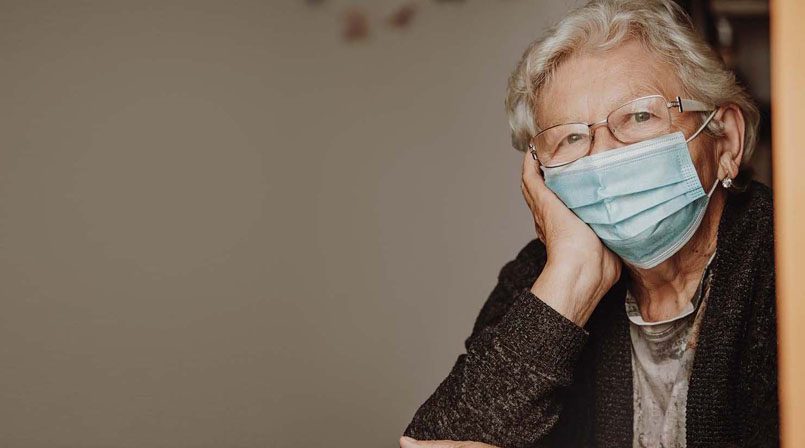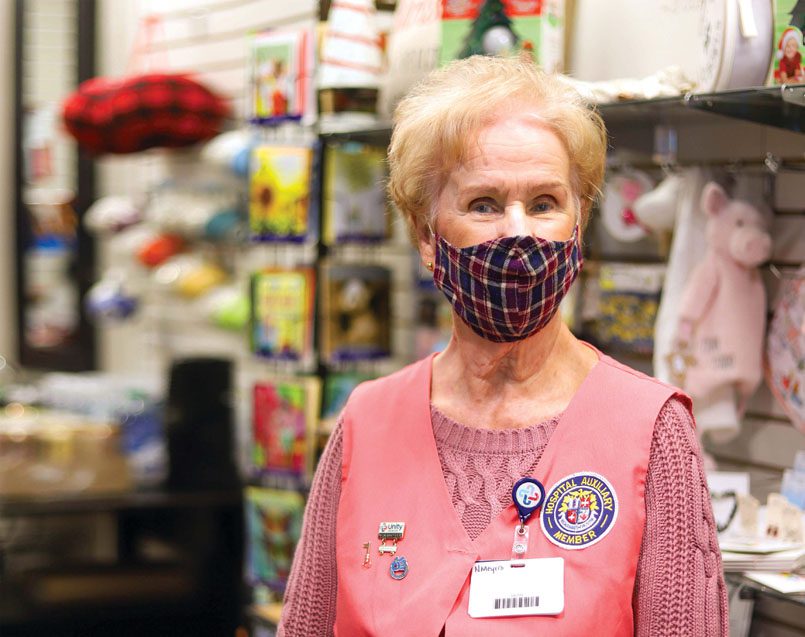31 Jan 2022 Helping seniors through the pandemic blues
By Jennifer Skinner
Living an active life as a senior is rewarding mentally, emotionally, and physically. Active seniors enjoy better mental and emotional health when they continue to do the things they love, try new things, challenge their minds, laugh, and have fun with friends and family. It is very important, even during a pandemic, for seniors to be connected and involved with meaningful projects, safe family activities, volunteering, and socializing. Those who stay active enjoy longer lifespans, improved thinking, better coping skills, happier and healthier moods, lower risk for health problems, and more stable emotional and mental health.
Spending time doing the things you love with the friends and family you care about is very important. However, two years in a worldwide pandemic has completely changed our active lifestyles. Particularly the lives of seniors who have been among the most vulnerable to COVID-19. Many withdrew immediately from the risks of crowds, group activities, church, volunteering, and part-time jobs. In doing so, many have been removed from the very things that keep them happy and healthy. The rewarding, mentally stimulating, and emotionally satisfying activities are important to older adults and the groups and organizations with which they are active. When things were so suddenly halted, there was a big impact on everyone, especially seniors. It has taken a toll on emotions and mental health.

It is easy to become secluded, inactive, bored, sad, depressed, lonely, confused, and completely unstimulated by a lifestyle no one expected or wanted. It is important to assess personal mental and emotional health through the pandemic and do the same for friends and family who may be struggling during this time. It doesn’t take much to get caught up in negativity or unhealthy mindsets.
Seniors can help battle the pandemic blues by staying involved in meaningful activities they enjoy and making conscious efforts to have a healthy lifestyle.
Some helpful tips include:
• Step away from the news for a while. Don’t fill all your time with negative news.
• Connect with friends and family with calls, porch visits, FaceTime calls, or social media.
• Attend church using precautions or view online services.
• Volunteer with an organization. There are ways to help even if you don’t want to be in-person.
• Go outside to enjoy the sunshine and fresh air.
• Start a new hobby or revisit an old one.
• Make good decisions for your overall health, including:
1. Get exercise and adequate sleep.
2. Eat healthy well-rounded meals .
3. Avoid alcohol and tobacco use.
4. Attend regular doctor visits and screenings.
It is normal for all of us to long for and even grieve the lifestyles we had pre-pandemic. Feelings of disappointment, sadness, or helplessness are normal when people experience a dramatic change in their lifestyles. The pandemic has evoked uncomfortable feelings of uncertainty and fear at times. It’s natural and important to express these changes in feelings and moods, but we should be concerned if moods and emotions become excessive, prolonged, or severe.

One of the best ways seniors can remain active and enjoy feeling good about their involvement in something meaningful is through volunteer opportunities. Volunteering for nonprofit organizations, churches, homeless shelters, and local hospitals is a rewarding way to maintain an active lifestyle you enjoy with friends. The Unity Health Auxiliary is accepting new volunteers in Searcy and Newport and soon in Jacksonville for the new Unity Health hospital. Possible positions include admissions, cafeteria, chaplain services, gift shops, guest services, materials management, sewing and knitting, special projects, and more.
Learn more at 501.380.1055 or unity-health.org/about-us/volunteers/.
Signs a senior may be struggling:
Changes in behavior including
• lack of concentration or interest in normal activities
• lack of energy or loss of appetite
• difficulty remembering
• sleeping more or less than usual or unexplained body aches or pain
Changes in emotions and
feelings including
• unusual negativity and being cranky, irritable, or having angry moods
• expressions and feelings of hopelessness
• expressions and feelings of low self-esteem or self-worth
If you notice changes in emotions or moods in someone else, you can reach out and
• make contact regularly with phone calls or porch visits
• listen without feeling like you must fix things
• let them know you are available and willing to talk
• encourage positive choices and activities they enjoy
• help them laugh and have fun
If you are concerned about a serious change in mood and/or emotions, consider speaking to someone who can help you or a loved one learn ways to manage these feelings. Unity Health – Clarity Health and Wellness offers easy counseling services and telehealth capabilities in convenient locations, so you don’t necessarily have to leave home.
Unity Health –
Clarity Health and Wellness:
501.203.0055 (Searcy)
870.495.1260 (Newport)
501.422.6431 (Cabot)
501.453.6000 (Jacksonville)









